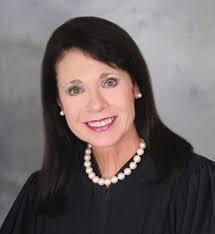
Judge Marialyn Barnard
The San Antonio [Fourth Division] Business Court has ruled that it does not have jurisdiction over a case removed from a probate court because Plaintiff didn’t agree to the removal.
Charlotte Rogers Barrett v. Marcus T. Barrett, IV, et al. (No. 25-BC04A-0013; 2025 Tex. Bus. 37; September 23, 2025) arose from a family dispute involving the administration of trusts. Plaintiff brought suit in Bexar County Probate Court No. 1, alleging that three family members who served as a trustee of the trusts breached fiduciary duties by making self-serving investments of trust assets in family-run businesses they control. Plaintiff sought modification of one of the trusts, monetary damages, judicial dissolution of a family partnership, attorney’s fees, and two declarations, one that trustees cannot use trust funds for payments of their expenses, attorney’s fees, or costs associated with the suit and the other that § 114.064, Property Code, controls their recovery of fees and expenses. On August 14, 2025, Defendant Marcus Barrett removed the case to the business court under various subsections of § 25A.004(b), Government Code. Plaintiff timely objected, arguing that the court lacked jurisdiction on various grounds.
In an opinion by Judge Barnard, the court ruled that it lacked jurisdiction and remanded to the probate court. Turning to § 25A.004, the court looked to subsection (f), the supplemental jurisdiction provision requiring the agreement of all parties to submit to the jurisdiction of the court, and subsection (g), stating that the court does not have jurisdiction over certain claims unless they fall within the court’s supplemental jurisdiction. These includes specified chapters of the Business & Commerce Code, the Estates Code, the Family Code, the Insurance Code, or Chapter 53 and Title 9, Property Code. The court concurred with Plaintiff that each of her claims arose directly out of Title 9, Property Code. Consequently, the court had no jurisdiction unless they fell within the court’s supplemental jurisdiction.
As Judge Barnard observed that Plaintiff’s amended petition showed that Plaintiff asserted all her claims in her individual and beneficiary capacity and her capacity as a trustee. She also sued several family members in their capacities as either former or current trustee. Citing to various sections of Title 9, Plaintiff alleged conspiracy and breach of fiduciary duties against the family members, sought monetary damages and modification of the trust, and asserted claims against the corporate defendants “originat[ing], stemm[ing] from, flow[ing] from, or result[ing] from actions conducted by the defendant trustees and matters concerning subject trusts.” The court thus concluded that, even presuming Plaintiff’s claims fell within its supplemental jurisdiction (which the court didn’t decide), she didn’t agree to submit them to the court’s jurisdiction. Consequently, the court remanded the case to probate court.












